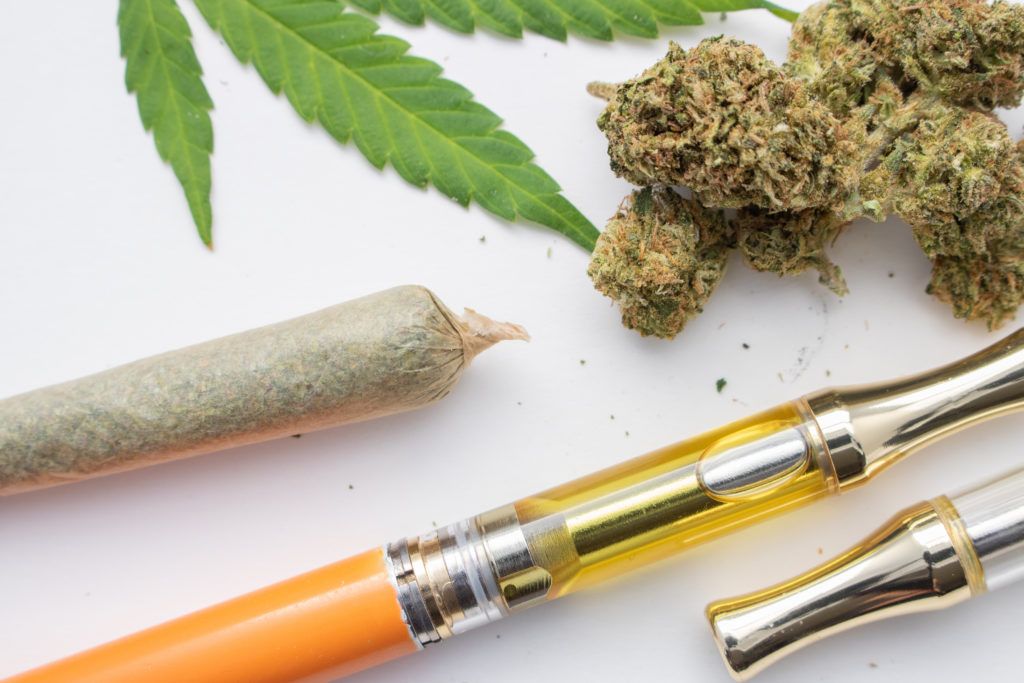During his 1980 presidential campaign, Ronald Reagan called marijuana the most dangerous drug because it was considered a “gateway” to harder drugs. For decades, this “theory” has been used by the lawmakers to establish harsh policies regarding marijuana’s prohibition, but is it really true?
Does using marijuana or cannabis lead to using other substances, like heroin or cocaine? The answer is not really. There is very little evidence to back up these claims. It’s true that many people use marijuana before they venture out and try other substances, but that alone doesn’t prove that marijuana use caused them to misuse other substances.

The idea was popularized in the 1980s, based on a generalized observation, that people who use substances recreationally often start by using marijuana or cannabis. Some people also believe that since “weed” is typically easier to afford and access than other drugs, that’s where people usually start.
And yet, as of 2021, marijuana has been approved for medical use in 34 states. An increasing number of medical professionals are using it to treat symptoms associated with diseases that cause chronic or acute pain. Use of marijuana to support physical and mental wellbeing is becoming more mainstream.
Statistically, the majority of people who try cannabis don’t go on to use other illicit drugs and generally quit their use of weed by the time they reach middle age. In fact, in cities where marijuana is legally accessible, adults usually report reducing their use of other drugs. In this sense, weed can be called a potential “exit drug” rather than the alleged “gateway”. Most people do not need to seek substance abuse help for marijuana. One study also found that cannabis may help in reducing cravings for opiates and cocaine!
It’s important to remember that there are several factors that can lead to someone misusing substances, including environmental, genetic, social, and personal factors.
The debate regarding marijuana as a gateway drug continues, with various studies offering differing perspectives. A 2023 study from the University of Colorado argued that legalizing recreational cannabis at the state level didn’t raise the rates of substance use disorders or the usage of other illicit drugs among adults; it might actually help in reducing alcohol-related issues-1. This aligns with another 2023 study that also found that cannabis is not a gateway drug, as legalization at the state level did not lead to higher levels of illicit drug use or substance abuse disorder-2.
On the other hand, a 2021 study suggested that cannabis might act as a gateway drug to opioid use, based on a systematic review and meta-analysis of six studies involving over 100,000 participants-3. Some discussions suggest that marijuana could be a gateway drug for some individuals but not for others, emphasizing the ongoing debate and research on this topic-4.
To supplement references to any studies, it’s crucial to acknowledge the ongoing research and differing opinions on whether marijuana serves as a gateway drug. The latest studies from 2023 have presented arguments both supporting and refuting this notion, illustrating the complexity and multi-faceted nature of this issue. In fact, public health experts of late argue focusing on “gateways” can be counterproductive, and that it’s more important to address underlying factors leading to drug abuse and addiction through education, prevention, and treatment.
It’s important to remember that there are several factors that can lead to someone misusing substances, including environmental, genetic, social, and personal factors.
Whether it’s alcohol, smoking, or marijuana, learning moderation is key to ensuring you have a good experience with it. Getting as “high” as you can should never be the goal.
The purpose should be to reach a comfortable sensation that allows you to have an enjoyable social interaction with others without compromising your ability to make healthy choices. If you take marijuana for medical purposes, for example, to reduce joint pain from arthritis, choose products that are infused with CBD oil and have a low THC level.
Reducing marijuana use may seem challenging, but there are steps you can take to make it more manageable without seeking substance abuse help, including:
However, do seek assistance if you feel you need help in quitting or moderating your use.
Consider our Choices program for cannabis. This self-guided program comes with a risk-free, money-back guarantee, and can help you learn valuable strategies to gain more control over your use of cannabis, alcohol, or gambling.
Have any questions? Complete this form to connect with us online today.